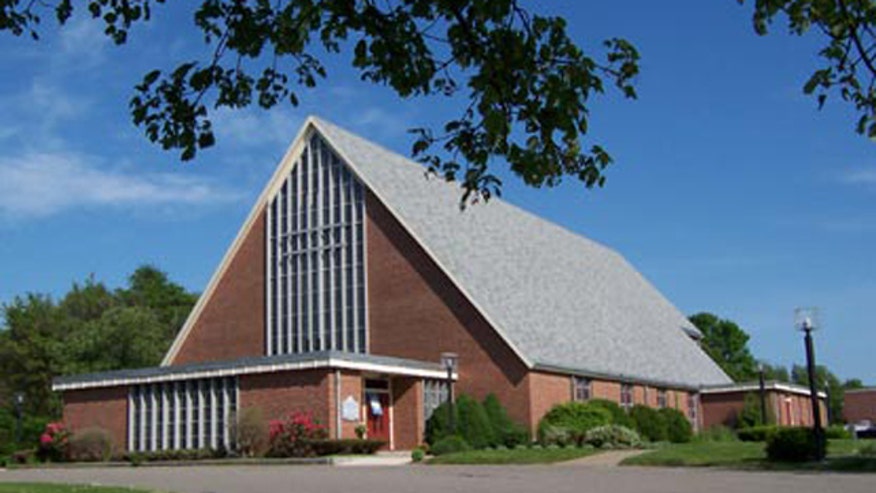
The government stopped printing bills larger than $100 in 1945 and hasn’t issued any since 1969. This one was found in a safe deposit box. It features Lincoln’s Treasury Secretary, Salmon P. Chase, and is kept in the New York corporate office of the bank that bears his name.
I could not agree more with this article from The American Thinker. It was brave and needed to be said.
Enjoy.
The Troubling Prosecution of Dennis Hastert
April 29, 2016 By Michael Filozof
I don’t like Dennis Hastert. During his tenure as Speaker of the House, my attitude toward him was, more or less, “Meh.” Hastert is undoubtedly the pervert and sexual predator he is accused of being – he admitted so in court. In all probability, he got exactly what he deserved when he was sentenced to prison Wednesday.
That being said, I am troubled by the way Hastert was prosecuted. It seems to me that the government targeted Hastert because he was a prominent politician and, in so doing, threw the constitutional rights of criminal defendants out the window.
Hastert was accused of numerous incidents of homosexual contact with teenage boys over forty years ago, when he was a high school wrestling coach in Illinois. Hastert was never charged with those alleged crimes, because the statute of limitations for prosecuting him expired.
Hastert was instead indicted for violating federal banking law when he tried to pay one individual to keep quiet about the alleged abuse. The crime of “structuring” is utterly bizarre: if you take $10,000 cash out of your own bank account, the bank must report it to the federal government. If, however, you take $9,999 out, you will be accused of “structuring” the transaction to avoid the $10,000 reporting requirement.
In other words, the $10,000 number for reporting to the government that you took your own cash out of your own bank account isn’t really the true number at all; whenever the government thinks you are “structuring” by taking out less, they will nail you for that anyway. It’s like getting a ticket from a cop for driving below the speed limit because you were trying to avoid a speeding ticket. It’s one of the most questionable prosecutions I’ve ever heard of.
But at Hastert’s sentencing, both the federal prosecutor and the judge made clear that the case was really about the sexual allegations, not the banking issue. Hastert was sentenced to fifteen months – more than double the six months recommended by federal sentencing guidelines. U.S. district judge Thomas Durkin called Hastert “a ‘serial child molester,’ and ignor[ed] the defense’s request for no prison time. ‘Some conduct is unforgivable no matter how old it is,’ Durkin told Hastert in a lengthy statement at the sentencing.”
The judge’s statement constitutes a serious problem in my view. Child molestation is not a federal crime; it’s a state-level crime. Judge Durkin had no business sentencing Hastert in federal court for state-level crimes for which the Illinois statute of limitations had expired and for which Hastert never stood trial. But that’s essentially what he did.
The accuser whom Hastert was trying to pay off remained anonymous. Why? In court documents, he is known as “Individual A.” Individual A received over a million dollars from Hastert. Did he pay income taxes on the money? Did he report the cash payments he received in excess of $10,000 to the government? If not, shouldn’t he be charged with tax evasion and failure to report cash transactions? What about blackmail? (In yet another strange twist, the Associated Press reports that “on Monday, Individual A filed a lawsuit saying he’s been paid only about half of the money and is still owed $1.8 million.”)
Other accusers who had not been paid off stepped forward at the sentencing – including the sister of a man who died from AIDS 21 years ago in 1995. “Stephen Reinboldt was named by prosecutors, who cited his sister, Jolene Burdge[.] … She told prosecutors Reinboldt’s first homosexual experience was with Hastert[.]” Is Burdge accusing Hastert of “turning” her brother gay? (I thought the gay lobby tells us we’re “born that way.”)
Even if Burdge’s allegations are true – which cannot be proven – what do they have to do with a sentencing in a federal banking case? Shouldn’t the judge have thrown out such hearsay? And doesn’t the testimony of relatives of long-dead “accusers” violate the Sixth Amendment’s right of a defendant to “be confronted with the witnesses against him”?
This whole matter stinks to high heaven. It’s pretty clear that the prosecution targeted Hastert because of his political status as a high-ranking Republican. Hastert may well have deserved it – and indeed, he cooperated with the prosecution by pleading guilty.
But the fact remains that other politicians – liberals, gays, and Democrats – have avoided criminal prosecution, while the feds threw the book at Hastert for things they didn’t even really have jurisdiction over. Democratic rep. Gerry Studds had a homosexual relationship with a 17-year-old boy in 1983. He was censured by the House but subsequently re-elected and regarded as a gay icon for being the first openly gay congressman. Openly gay Democrat Barney Frank lived with a gay prostitute in the 1980s and was reprimanded by the House. He, too, was re-elected and regarded as a gay pioneer.
Why didn’t federal prosecutors pursue Studds and Frank on flimsy unrelated charges? Why hasn’t Hillary Clinton been charged with mishandling classified information, like Gen. David Petraeus – or sent to prison, like Bradley (ahem – “Chelsea”) Manning? Why did Sen. Ted Kennedy get no jail time for killing Mary Jo Kopechne while driving drunk at Chappaquiddick – while Hastert will do fifteen months for withdrawing his own money from his own bank account? And what about the rape allegations against Bill Clinton?
The answer is clear: the criminal justice system isn’t neutral; it’s politicized. Back in the 1950s and 1960s, when the left was the counterculture, leftists were quite concerned with the criminal defense of Communists, hippies, draft evaders, pornographers, gays, civil rights marchers, and the like. Today, the left is politically ascendant and all too happy to stand idly by or be complicit in the prosecution of its Republican and conservative political opponents – e.g., Scooter Libby, Tom Delay, Rick Perry, and Dinesh D’Souza. Legions of liberal lawyers are willing to defend minority drug dealers and murderers – was none of them willing to question the prosecution of Hastert? Why did the gay lobby not speak out on his behalf?
The Constitution requires that the government must prosecute people fairly and abide by the letter and the intent of the law. That means that sometimes, people who morally deserve punishment will legally get off without it (such as O.J. Simpson).
Hastert is unquestionably a bad guy to defend. But the object here isn’t to defend Hastert; it’s to criticize the government. In the Hastert case, the government seems to have railroaded a guilty man. But if they can railroad Hastert, they can railroad anybody – including you and me.
###

